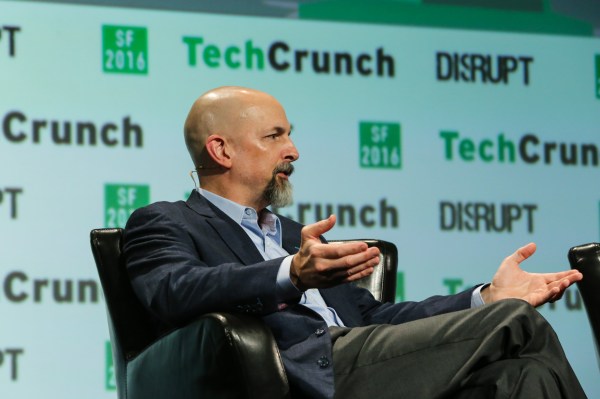Neal Stephenson, who inspired much of the current VR industry with his novel Snow Crash, explained why he’s excited about virtual reality and augmented reality — and it’s for less technical reasons than you might think.
In addition to his work as a science fiction writer (he appeared at Disrupt SF today to promote his novel Seveneves), Stephenson is chief futurist at secretive AR company Magic Leap, but apparently he’s not allowed to talk about his work with the company. He could, however, speak more broadly about the possibilities he sees in these technologies.
He contrasted VR/AR with more traditional art forms, where he said, “Everybody knows what works.”
“If you want to make a movie, everybody knows that superhero movies make money,” Stephenson continued. “It’s easy to get those financed and not as easy to get other kinds of indie films financed.”
[gallery ids="1386274,1386276,1386270,1386272,1386215,1386207,1386204"]
In his view, that’s something that always happens across media, but “there are these moments that come up from time to time, when a new medium emerges, when nobody knows anything … This is one of those moments, I think.”
Stephenson also discussed trends in science fiction and futurism, saying, “I, at a certain point, got tired of the dystopian thing.” He suggested that Hollywood has embraced dystopias because it’s “cheaper and quicker to do that than to meticulously extract a whole alternate reality.”
Stephenson admitted that he’s “throwing stones in a glass house here,” since he’s written dystopian science fiction himself. (TechCrunch’s John Biggs praised Seveneves, which depicts the disintegration of the moon and subsequent efforts to rebuild human civilization, for swerving between utopia and dystopia.) John described himself as a tech utopian and asked Stephenson about his general outlook on technology and the future.
“From where I’m sitting, I’m seeing a thousand little white Apples,” Stephenson said as he looked out at the Disrupt audience. “You can argue that there’s a social impact that’s not so great, in that people can be so fixated on their phone or their laptop that they’re not looking up … I would hope we find our way that we kind of get both, that we continue to get access to all the cool information that’s available on the Internet but maybe do so in a more social way, a more shared way and kind of get back in the habit of looking at each other.”
